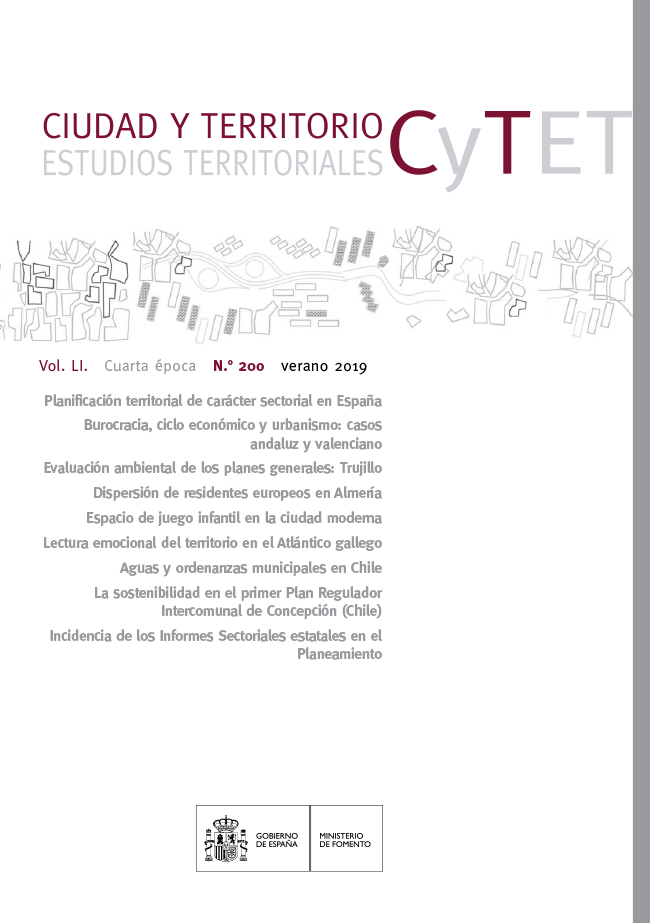Bureaucracy, economic cycle and efficient and productive Urban Planning in Spain. The Andalusian and Valencian cases
Keywords:
Urbanism, economic crisis, housing, urban planning legislation, Public AdministrationAbstract
How to apply an effective and practical urbanism in the 21st century? Above all, in a moment full of uncertainty, liquid, global and of alleged exit from the so-called Gobal Crisis. Indeed, there are three contextual factors that explain many of the conflicts of urbanism in the first quarter of our century. In the first place, the macroeconomic evidences opens the way to emerge from the Global Crisis, which in our view implies an approach of changing the cycle. Therefore, and secondly, a selective process of the investment object is observed, translated into the adaptation of the real demand to the investment, and to a large extent, to the differential and secure financing. Third, although the previous arguments show the remarkable recovery and change in the investment function, there is a dissimilarity in the regulatory function of the public administrations, which, in short, are the regulatory force of the urban impulse.Downloads
Downloads
Published
How to Cite
Issue
Section
License
Copyright (c) 2019 Manuel J. Marchena-Gómez, José Luis Alegría-Fernández, Francisco J. Vázquez-Pinillos

This work is licensed under a Creative Commons Attribution-NonCommercial-NoDerivatives 4.0 International License.
Considering the provisions of the current legislation on Intellectual Property, and in accordance with them, all authors publishing in CyTET give -in a non-exclusive way and without time limit- to the Ministry of Transport, Mobility and Urban Agenda the rights to disseminate, reproduce, communicate and distribute in any current or future format, on paper or electronic, the original or derived version of their work under a Creative Commons Attribution-NonCommercial-NoDerivative 4.0 license International (CC BY-NC-ND 4.0), as well as to include or assign to third parties the inclusion of its content in national and international indexes, repositories and databases, with reference and recognition in any case of its authorship.
In addition, when sending the work, the author(s) declares that it is an original work in which the sources that have been used are recognized, committing to respect the scientific evidence, to no longer modify the original data and to verify or refute its hypothesis. Author(s) also declare that the essential content of the work has not been previously published nor will it be published in any other publication while it is under evaluation by CyTET; and that it has not been simultaneously sent to another journal.
Authors must sign a Transfer of Rights Form, which will be sent to them from the CyTET Secretariat once the article is accepted for publication.
With the aim of promoting the dissemination of knowledge, CyTET joins the Open Journal Access (OA) movement and delivers all of its content to various national and international indexes, repositories and databases under this protocol; therefore, the submission of a work to be published in the journal presupposes the explicit acceptance by the author of this distribution method.
Authors are encouraged to reproduce and host their work published in CyTET in institutional repositories, web pages, etc. with the intention of contributing to the improvement of the transfer of knowledge and the citation of said works.








 Enlace a CyTET en Linkedin
Enlace a CyTET en Linkedin